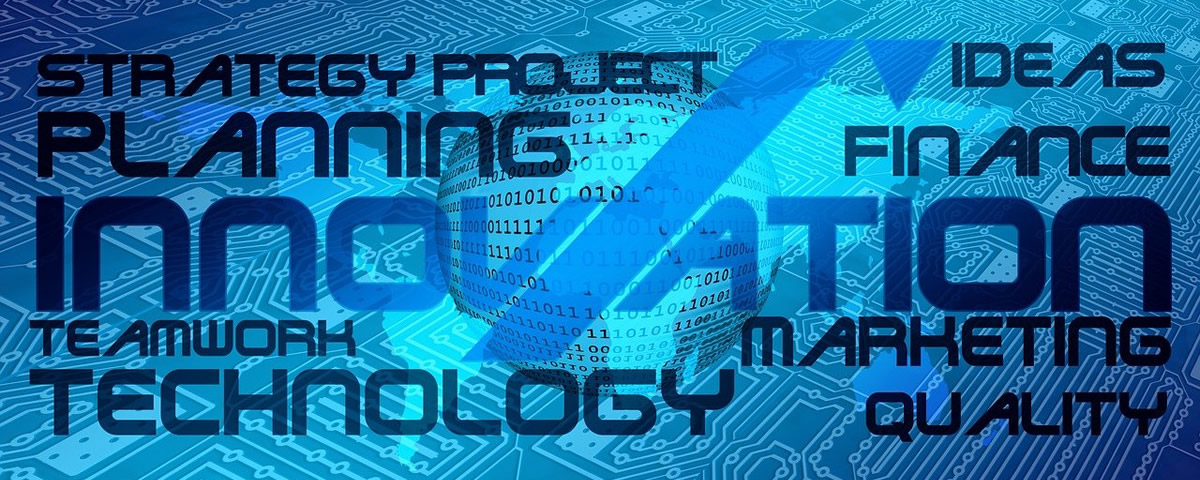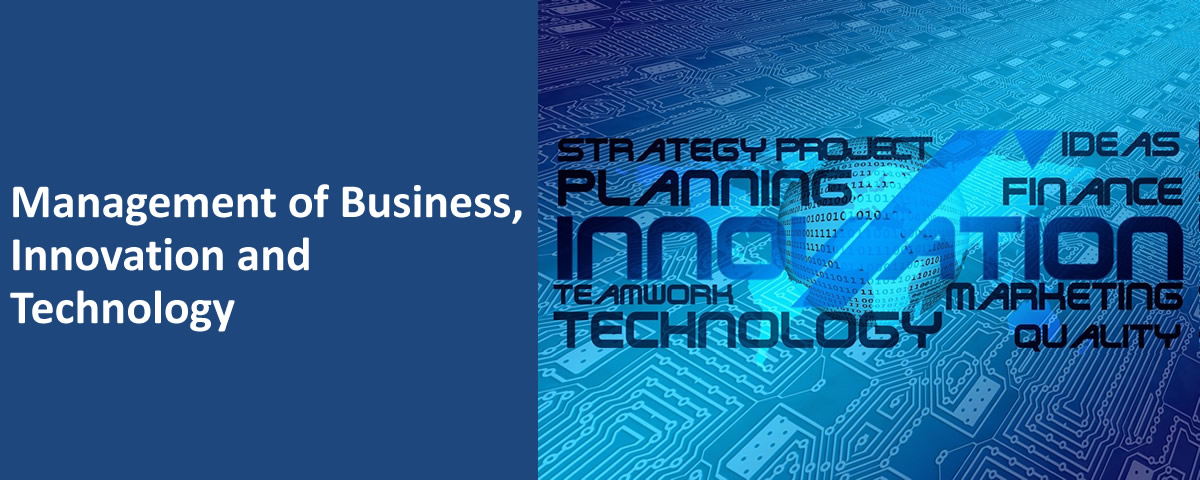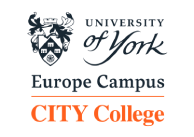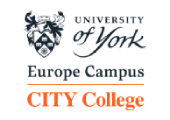Management of Business, Innovation and Technology - MSc


Degree Title: Master of Science in Management of Business, Innovation and Technology
Dual degree: Upon successful completion of the programme graduates are awarded the MSc in Management of Business, Innovation and Technology degree directly from the University of York. Graduates also receive an undergraduate degree from the New Bulgarian University (NBU) by fulfilling the NBU requirements.
Course duration: 2 years (classes 2 weekends per month; one weekend is taught by CITY College, University of York Europe Campus and the other by NBU). Classes take place over a long weekend (Friday afternoon, Saturday and Sunday).
Admission requirements: Applicants should apply independently to both CITY College, University of York Europe Campus and NBU by filling in their respective application forms. To be officially admitted to the programme, applicants should comply with both institutions' entry requirements and should be accepted as students by both.
For more information about the dual University of York and NBU degree, graduates may contact our Country Office in Sofia (23 Tvardishki prohod street, Fl. 9, office 34 , Tel: +359 2 961 62 63, +359 888/ 43 57 50) or fill in the online form below or contact NBU directly.
Business innovation is the cornerstone of a successful company. In order to identify business opportunities and bring new ideas business leaders need to possess strategic skills and interdisciplinary knowledge. Targeted to graduates from a wide range of disciplines, the MSc in Management of Business, Innovation and Technology provides an innovative, strategic integration of management, innovation and technology and aims to prepare you for management roles in any type of organization. By examining cutting-edge and emerging ICT that enable and support business processes and innovation, combined with a strategic, management-focused approach, the programme builds the necessary knowledge and skills that drive effective strategic management, intelligent decision making and business innovation.
Entry requirements
View the application and admission requirements of the programme.
How to apply
If you wish to apply for this programme you may view details of the application process.
Any questions?
If you'd like to know more about this programme, contact our Admissions Team at dpencheva
Bridging Unit:
Fundamentals of Business and ICTCore Units:
Innovation and Entrepreneurship
ICT for Strategic Management
Global Virtual Enterprise
Strategic Management in Modern Business
Managing Knowledge-Driven ICT Projects
Research Skills and Dissertation Preparation
DissertationTwo units from the following:
Managing Strategic Change
Accounting and Finance
Digital Marketing
Knowledge Technologies for Innovation
Innovation Management and New Product Development
Fundamentals of Business and ICT
Information and Communication Technologies (ICT) is a broad term used to describe the technologies used in managing and processing information. Utilization of such technologies can increase productivity and promote innovation. This bridging module provides a broad introduction to issues relating to information and communication technologies that are being deployed in modern organisations. It includes underlying principles, concepts, technologies and architectures that enable computer systems to store, process, retrieve, transmit, and protect information. Apart from knowledge on ICT, individuals working in organizations in the twenty-first century have a greater need than ever for effective management skills. Fierce global competition is expected to continue its acceleration and it is these skills that will help to differentiate organizations. Gaining a competitive advantage will be more critical to survival and success. The bridging unit also presents the dynamics of the workplace and key principles underlying the every day functioning of organizations covering the areas of management, marketing, and organizational behaviour. ![]()
Innovation and Entrepreneurship
The unit examines both theoretical and practical issues facing managers and entrepreneurs in order to drive innovation within their organizations. It begins with a detailed overview of the entrepreneurial process and progresses to introduce the four major components of business models, which include: core strategy, strategic resources, partnership network, and customer interface. The unit also presents the different types of innovation and examines strategies, processes and tools that promote creativity, innovation and entrepreneurial conduct in organizations. Furthermore, it explores how technological, social, cultural and economic conditions can create both opportunities and threats for established and new firms. ![]()
ICT for Strategic Management
DData are a vital organizational resource that need to be managed like other important business assets. powerful technologies allow vast amounts of data to be stored, organized and analyzed in order to provide accurate, consistent and complete information which can be used to develop new businesses, achieve operational excellence and guide decision making. This unit examines the managerial and organizational requirements, as well as, the technologies and applications for managing data and information. It addresses the opportunities and the competitive advantage of information technology utilisation to support the organizational processes and provides insight in the decision making process by introduces to tools such as customer relationship management (CRM), supply chain management (SCM), enterprise resource planning (ERP), and decision support systems (DSS). ![]()
Global Virtual Enterprise
Global Virtual Enterprise Telecommunications have become an integral component of the business environment, and are part of the strategic, tactical, and operational processes of an organization. this unit is concerned with the use, deployment and management of telecommunications resources that support the business of an organization. It provides a comprehensive overview of the fundamental principles, technologies and practices employed in data, computer, wireless and internet communications. Then, by focusing on business applications of telecommunications and by clarifying key technical and managerial issues, the unit presents how telecommunication technologies can be an efficient business tool for creating and managing new consumer services and technologies as well as for supporting inter-organizational coordination and increasing operational readiness. ![]()
Strategic Management in Modern Business
Strategy is the direction and scope of an organization over the long term, which achieves advantage for the organization, through its configuration of resources within a constantly changing and challenging environment, to meet the needs of markets and to fulfil stakeholder expectations. Strategic management can be conceived in terms of strategic analysis, strategic choice, and strategy implementation. Strategic management is distinguished from day to day operational management by the complexity of influences on decisions, the fundamental organization-wide implications that strategic decisions have for the organization and their long-term implications at all levels, from operational to business and corporate level. This unit provides insights to all the above irrespective of the size and the nature of the company. ![]()
Managing Knowledge-Driven ICT Projects
Most recent innovations can be traced back to a project: the behind-the-scenes work that, when correctly managed, results in a new system, a new technology, or a new product in the marketplace. This unit presents a sound framework in it project management including issues such as project estimation, risk analysis, budgeting, scheduling, monitoring, evaluating as well as the important role of the human factor. Within the framework, the unit examines the methodologies and tools necessary for each aspect of the process supported by meaningful examples of real projects, building in this manner a sound project management foundation for tomorrow's it innovators and managers. ![]()
Research Skills and Dissertation Preparation
The aim of this unit is to prepare students for the processes they need to follow in their dissertation. This will be accomplished by exposing students to the principles of formal report writing, literature reviewing, research project designs and approaches. these research approaches will include the design of data collection and analysis methods for user requirements, as well as, the representation and interpretation of the results of testing and evaluation. ![]()
Dissertation
The dissertation offers the opportunity for students to pursue, in depth, a piece of empirical research. This work will allow students to pursue the application of theory within a practical situation of their choice. ![]()
Managing Strategic Change
The introduction of technology, increasing needs of society and the growth of global organisations trading in goods, knowledge and innovation has increased the need for, and frequency of, change. Change is critical because it is fundamental to the long-term survival and competitiveness of an organisation and it is complex because of the human resource and cultural barriers that must be overcome if the change process is to be successful. Although the majority of people are resistant to change, more and more are finding themselves affected by it and having to come to terms with the issues and benefits it brings. Effective change management cannot therefore be underestimated and its implementation needs considerable thought and commitment by managers and executives implementing the change, as well as, from the recipients of change. ![]()
Accounting and Finance
Financial information is a critical instrument in presenting a firm’s financial picture to external and internal groups or users for the sole purpose of enhancing the decision making process. The unit focuses on the understanding and the interpretation, rather than the preparation, of the accounting information. It links theory with practical examples and case studies drawn from real life business situations in service, retail and manufacturing industries and assists future managers to read behind accounting data so as to create and maintain a sustainable competitive advantage for their company. ![]()
Digital Marketing
New ways of using the Internet continue to emerge and its use is constantly increasing. More and more people are looking for information, products and services online so it only make sense for Internet to be used as an important marketing tool. This potential for e-business emerged in a dynamic way at the 1990s and since then it still has a strong influence on marketing and communication tools. The new technologies and especially the Internet formed a new value creation which has become the basis for competitive strategy. Understandably, we have entered the digital era, where suppliers, distributors, providers and customers are using the web as the main platform for communication and transactions. This unit is designed to help students understand and shape innovations in e-business and digital marketing brought by the internet-based tools, mobile and multimedia technologies. ![]()
Knowledge Technologies for Innovation
In a rapidly changing world the path towards innovation demands efficient storage/retrieval and exploitation of a “new” business asset, knowledge that aims to increase the performance of classic enterprise systems and facilitate quality decision-making. The unit provides an introduction to knowledge technologies, with emphasis in methods, applications as well as commercial products. It offers an overview of knowledge and reasoning based systems together with a series of case studies to clearly demonstrate their applicability and potential for innovation. Smart agents, ontologies and the semantic web services, all important research areas with potentially a large amount of business applications are discussed. The unit presents important automated decision-making areas, i.e. machine learning and data mining, planning and scheduling, whose application can significantly increase the efficiency of existing processes in the enterprise. Finally, the unit concludes with a good number of applications that stand at the frontiers of innovative smart business management products. ![]()
Innovation Management & New Product Development
In every organisation there are people charged with getting new products and services to the market place. those people view the total task: strategy, concept generation, testing, marketing and all other aspects of introducing new products to the market place. This unit provides a management approach to acquaint students with the managerial steps and processes involved in the perilous world of product development. The steps and processes apply to products and services as well as to consumer or industrial products focusing on technological enterprises. the unit begins with an introduction to new product development offering information in product classification and analyzing the various phases of developing new product. The unit also introduces the students in basic concepts of marketing a new product (launching, branding, packaging). ![]()
Students do not only acquire a sound theoretical understanding but they also gain practical experience, by applying their knowledge on real life projects. Students benefit from the research-led environment, since they are exposed to not only the well-established fundamentals in their courses, but also to the most advanced theories and techniques currently under consideration and they are encouraged to be involved in academic research activities. Students are taught by academic staff members who are passionate about developing and delivering high quality innovative and inspirational learning and teaching methods. Students benefit from the provision of personal support, which ensures their successful learning development.
More about the Computer Science Department
Graduates of the MSc in Business Management, Technology and Innovation can pursue management careers in a wide variety of industry sectors such as consultancies, services, technology-based firms, telecommunications, education, manufacturing, academia and governmental organisations or start their own company.
Career, Employability and Enterprise Centre
The Career, Employability and Enterprise Centre, focuses on helping students to set attainable career goals. It offers advice on CVs and cover letters, and on how to effectively handle job interviews. Through career fairs, and different internship programmes, the department aims at constantly bringing students in contact with prospective employers.
More about our Career Services.
Contact the Career, Employability and Enterprise Centre at careers@york.citycollege.eu








